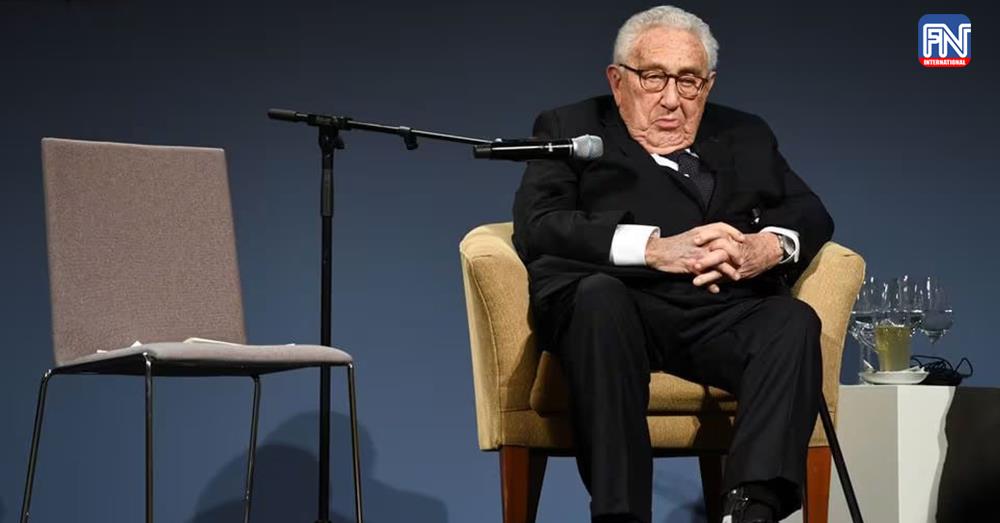WASHINGTON, Nov 29 (Reuters) - Henry Kissinger, a controversial Nobel Peace Prize winner and diplomatic powerhouse whose service under two presidents left an indelible mark on U.S. foreign policy, died on Wednesday at age 100, according to his geopolitical consulting firm Kissinger Associates Inc.
Kissinger died at his home in Connecticut, Kissinger Associates said.
Kissinger had been active past his centenary, attending meetings in the White House, publishing a book on leadership styles, and testifying before a Senate committee about the nuclear threat posed by North Korea. In July 2023 he made a surprise visit to Beijing to meet Chinese President Xi Jinping.
In the 1970s, he had a hand in many of the epoch-changing global events of the decade while serving as secretary of state under Republican President Richard Nixon. The German-born Jewish refugee's efforts led to the diplomatic opening of China, landmark U.S.-Soviet arms control talks, expanded ties between Israel and its Arab neighbors, and the Paris Peace Accords with North Vietnam.
Kissinger's reign as the prime architect of U.S. foreign policy waned with Nixon's resignation in 1974. Still, he continued to be a diplomatic force under President Gerald Ford and to offer strong opinions throughout the rest of his life.
While many hailed Kissinger for his brilliance and broad experience, others branded him a war criminal for his support for anti-communist dictatorships, especially in Latin America. In his latter years, his travels were circumscribed by efforts by other nations to arrest or question him about past U.S. foreign policy.
His 1973 Peace Prize - awarded jointly to North Vietnam's Le Duc Tho, who would decline it - was one of the most controversial ever. Two members of the Nobel committee resigned over the selection and questions arose about the U.S. secret bombing of Cambodia.
Ford called Kissinger a "super secretary of state" but also noted his prickliness and self assurance, which critics were more likely to call paranoia and egotism. Even Ford said, "Henry in his mind never made a mistake."
"He had the thinnest skin of any public figure I ever knew," Ford said in an interview shortly before his death in 2006.
With his dour expression and gravelly, German-accented voice, Kissinger was hardly a rock star but had an image as a ladies' man, squiring starlets around Washington and New York in his bachelor days. Power, he said, was the ultimate aphrodisiac.
Voluble on policy, Kissinger was reticent on personal matters, although he once told a journalist he saw himself as a cowboy hero, riding off alone.

Photo from Reuters